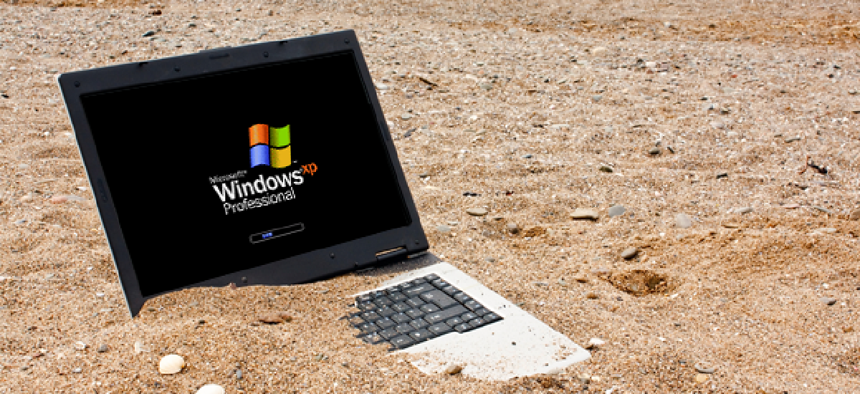Not dead yet: Windows XP alive and kicking


Connecting state and local government leaders
Despite not being officially supported by Microsoft for the last year, some 250 million users were still actively using Windows XP in March 2015, according to market analysts.
There are still plenty of government offices using Windows XP. Earlier this year, Dawn Leaf, CIO at the Department of Labor, said that it still had 10,000 people running Windows XP, despite all efforts to upgrade. And 35 percent of the British National Health Services' computers are still running Windows XP, according to Popular Mechanics.
Think these agencies are outliers? Think again.
Despite not being officially supported by Microsoft for the last year, some 250 million users are still actively using Windows XP in March 2015, according to market analysts.
Windows operating systems account for more than 90 percent of worldwide desktop OS market share, with Windows XP making up nearly 17 percent of that portion, according to Net Applications, a market statistics firm.

Net Applications' worldwide share figures by operating system for March 2015.
StatCounter, another analyst organization, puts Windows XP share at just over 11 percent, with the U.S. share at 6.5 percent.
Still that means that a year after support officially ended, only Windows 7 has more share than Windows XP.
The Labor Department’s acknowledgement of the XP holdouts came during the Cloud Expo in London in March, where Leaf described the agency’s efforts to migrate to the cloud. "There's actually still a lot of people running Windows XP," said Kasper Lindgaard, director of research and security at Secunia, in a recent telephone interview about Secunia's Annual Vulnerability Review.
Before the deadline, much concern was focused on how vulnerable all those Windows XP machines would be to newly discovered flaws. Since the support deadline, there's been less attention paid to the issue, other than a Microsoft decision to patch a particularly serious flaw affecting Windows XP a few weeks after the support deadline (MS14-021).
Nonetheless, other new vulnerabilities discovered since April 8, 2014, probably affected Windows XP as well, Lindgaard said.
"Vulnerabilities that affect Windows 8 only or Windows 7 only probably won't affect Windows XP," Lindgaard said. "It's fair to assume that some vulnerabilities that affect older versions of the Windows client and Windows server may also affect Windows XP."
Meanwhile, as the anniversary of the Windows XP support cutoff passes, other deadlines approach. On July 14 of this year, support ends for Windows Server 2003. On the same day, Microsoft plans to end anti-malware signature updates for Windows XP on Microsoft Security Essentials. A little further out, support ends for SQL Server 2005 on April 12, 2016.
This article originally appeared on Redmond, a sister site to GCN.




